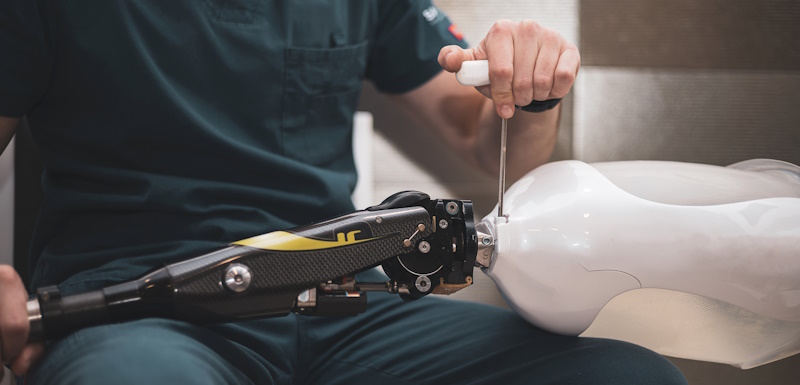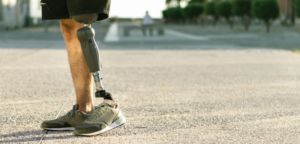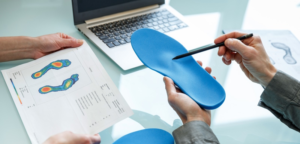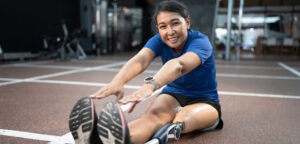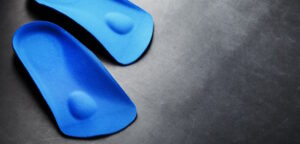Helpful Facts That Can Guide Your Selection When Searching for Prosthetics Near You
Stepping into the world of prosthetics for the first time can feel a bit like information overload. As an amputee, you’re forced to adapt to a new way of life on a tight timeline. Plus, you will eventually need to make the big decision of choosing a permanent artificial limb.
Embarking on the journey of researching and choosing a custom prosthetic is a significant step for amputees. While the world of prosthetics has seen remarkable advancements, there are often aspects that go unnoticed during the initial stages of exploration.
In this blog, we’ll delve into lesser-known facts about custom prosthetics, shedding light on key considerations that will empower amputees with valuable insights as they navigate this transformative process. Additionally, we’ll provide info on how to locate custom prosthetics near you from a licensed prosthetist.
Advanced Prosthetics Are Custom Designed to Fit Your Lifestyle
Custom prosthetics are not one-size-fits-all solutions. After the residual limb has fully healed, they are tailored to match the individual’s unique anatomy, which ensures a comfortable fit and optimal functionality. Advancements in prosthetic design now allow for customization based on lifestyle preferences, whether it’s for athletics, work, or daily activities.
Advances in Socket Technology Add Comfort
The socket, which is the interface between the residual limb and the prosthetic device, has seen significant technological advancements in recent years. Innovative materials, such as silicone liners, contribute to a more comfortable and secure fit. These advancements minimize skin irritation, protect against moisture, and improve overall functionality.
Mind-Controlled Advanced Prosthetics Are Amazing!
Although it may seem like something out of a sci-fi movie, prosthetics exist that can be controlled using intuitive systems that are connected to the wearer’s brain, muscle tissue, and nerves. While this technology is still in the early stages, it showcases the potential for more natural control of custom prosthetics in the future.
Cosmetic Realism and Aesthetics Have Greatly Improved
In the current world of prosthetics, function and fashion now get the same level of attention from prosthetists. Functionality is paramount, of course. Amputees must be able to depend on their prosthetics to deliver mobility, stability, and other core functions.
However, aesthetic appearance is also incredibly important. Prosthetic limbs can be crafted to resemble the natural appearance of the individual, with realistic skin tones, veins, and even freckles. This emphasis on cosmetic realism can empower amputees to feel more confident and comfortable in social and professional settings.
Sensory Feedback Prosthetics Elevate the Wearer’s Experience
Advancements in sensory feedback technology allow for the integration of sensors into custom prosthetics. This technology enables users to receive feedback about pressure, temperature, and other sensations pertaining to touch. By enhancing the overall sensory experience, wearers feel more integrated with their artificial limbs.
Prosthetics Can Be Customized for Specific Athletic Activities
What custom prosthetics have enabled amputees to accomplish in their athletic endeavors is nothing short of amazing. Prosthetics can be tailored to accommodate specific high-functioning activities, such as running, skiing, and swimming. This means athletic amputees can continue competing and engaging in recreational play.
Emotional Support and Counseling Services Are Now Available
There used to be a time where the mental health of amputees was little more than an afterthought. Fortunately, that’s not the case anymore, and many of the stigmas surrounding mental health have dissipated.
Prosthetic clinics can refer their clients to licensed counselors for psychological support to help them adjust to their new way of life. Emotional well-being is recognized as a crucial component of the overall rehabilitation process.
How to Find Custom Prosthetics Near You
Although there have been some extraordinary advancements in the world of prosthetics, it’s important to remember that some of these concepts are still in the development phase. Further, some high-functioning advanced prosthetics may be too expensive for the average person to reasonably consider. There are numerous prosthetic devices that cost $100,000 or more because they feature microprocessors or other advanced technology.
If you’re a recent amputee who is new to prosthetics, the most important thing is to find an experienced prosthetist who can guide you through the journey. In addition to overseeing the process of fitting and customizing your prosthetic device, your prosthetist will also handle any adjustments as your residual limb heals and troubleshoot issues that may arise. They can even help you connect with other resources you will need, such as physical therapists and mental health professionals who treat amputees.
Contact a prosthetist who specializes in customized prosthetics near you today to get started. The typical first step is a consultation, during which your prosthetist will get to know more about you, your medical background, and your immediate and long-term goals. With this information, they can talk you through your options, make recommendations, and explain how everything will work with your insurance provider.

